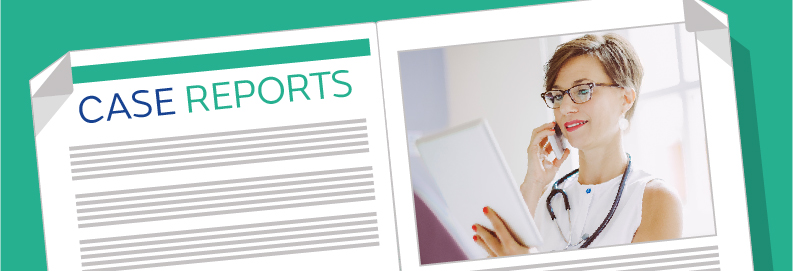Missed or delayed diagnosis of cancer the most common reason for high value claims - Medical Protection
Consent – The basics - Northern Ireland
Respect for patients’ autonomy is expressed in consent law; to impose care or treatment on people without respecting their wishes and right to self-determination is not only unethical, but illegal. The approach to consent in Northern Ireland is currently governed by common law.
Read moreArticle contains
Medical records - Northern Ireland
Good medical records – whether electronic or handwritten – are essential for the continuity of care of your patients. Adequate medical records enable you or somebody else to reconstruct the essential parts of each patient contact without reference to memory. They should therefore be comprehensive enough to allow a colleague to carry on where you left off.
Read moreArticle contains
Tagged in...
Removing patients from the practice list - Northern Ireland
Removing patients from the practice list is an emotive issue, risking criticism from bodies such as the Northern Ireland Ombudsman, the General Medical Council (GMC) and the media and should only be used after careful consideration and as a last resort.
Read moreArticle contains
Tagged in...
Consent – Children and young people - Northern Ireland
Valid consent is just as important when treating children and young people as it is with adults. In some situations children are able to give consent themselves, and sometimes others need to take the decision on their behalf. This factsheet sets out the basic information to enable you to obtain the appropriate consent from children and young people.
Read moreArticle contains
Tagged in...
Access to medical reports - Northern Ireland
Doctors may, on occasion, receive a request from a patient’s employer, an insurer or from a government department, for a medical report to be delivered directly to the relevant department, without the patient seeing it.
Read moreArticle contains
Tagged in...
Refusing unsafe rotas
The GMC has issued a statement to doctors who may be asked to cover rota gaps which they feel they cannot safely cover.
Read moreArticle contains
Tagged in...
Chaperones FAQs
There is a certain ambiguity surrounding chaperones and what exactly their purpose is. Below are common questions that Medical Protection receives about chaperones.
Read moreArticle contains
Tagged in...
Risk alert: New referral system of medical suitability of gun owners
Industrial action going ahead
The BMA has announced further industrial action in its ongoing dispute with the Department of Health over the proposed junior doctor contracts. The first ‘emergency care only’ action is to take place 6 – 8 April, with full withdrawal of labour on 26 and 27 April.
Read moreArticle contains
Tagged in...
Executive Director, John Tiernan, retires after 23 years at MPS
John Tiernan, Executive Director of Member Engagement at MPS will retire in July 2016, after 23 years’ supporting doctors and dentists in dentolegal and medicolegal issues.
Read moreArticle contains
Tagged in...
Medical Protection reminds members of its position on apologies
Following the launch of the Parliamentary Health Service Ombudsman’s (PHSO) report titled General practice complaint handling across England: a thematic review, which was released today in collaboration with the Care Quality Commission (CQC), NHS England and Health Watch, Medical Protection reminds members of its position on apologies.
Read moreArticle contains
Apologies
Unfortunately things do go wrong in healthcare and sometimes patients are dissatisfied, disappointed or upset with the care that they have received. Medical Protection supports open communication, and we encourage members to apologise where things have gone wrong, regardless of fault.
Read moreArticle contains
Indemnity arrangements for nurses
It is a legal requirement for practising nurses to have an appropriate insurance or indemnity arrangement in place in order to be registered with the Nursing and Midwifery Council. Nurses will be asked to provide evidence of this as part of the revalidation process, which is being introduced from April 2016.
Read moreArticle contains
Medical Protection makes changes to GP subscriptions to help with extended hours
Medical Protection has made changes to how it sets GP subscriptions to reflect current and emerging primary care delivery across the UK. New definitions of work patterns have been introduced, in a move that Medical Protection hopes will help members who wish to work extended hours.
Read moreArticle contains
Raising concerns and whistleblowing - Northern Ireland
One of the most difficult situations faced by any clinician is when you are concerned that a colleague’s behaviour, health or professional performance may be placing patients at risk. This factsheet outlines your duty to raise concerns when patients may be at risk of harm.
Read moreArticle contains
Tagged in...
Flooding caused by Storm Desmond this weekend
During these difficult times for the people affected by Storm Desmond, Medical Protection wants to do what it can to support its members to keep the public healthy and safe. We know that those working in general practice are doing all they can to respond to any increase in demand for their services.
Read moreArticle contains
Tagged in...
Medical Protection survey: One in three male doctors have experienced depression
Clinical negligence claims – what to expect - England
A clinical negligence claim is a demand for financial compensation for alleged harm caused by substandard clinical care. Common reasons for claims include failure or delay in diagnosis, or incorrect treatment. In fact, many claims arise out of poor communication.
Read more



